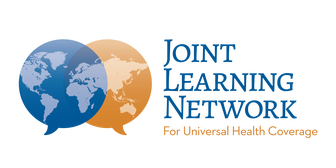
Mongolia
Year Joined: 2014 | Membership: Full Member
Ensuring the availability, accessibility, and affordability of health services to Mongolians
The Ministry of Health leads the policies and strategies to achieve universal health coverage in Mongolia, ensuring coordination and cooperation among stakeholders for effective and efficient health sector management.

Oyuntsetseg Purev
Director General, Policy Planning Department, MOH

Byambasuren Lamjav
General Director, Health Insurance General Authority

Bat-Erdene Purevdorj
Head, Budget expenditure division, Fiscal Policy Department, MOF

Batchimeg Batchuluun
Senior officer, Economic and Finance Department, MOH

Uranchimeg Tsevelvaanchig
ETC consultant, World bank group, Mongolia

Batbayar Ankhbayar,
Researcher, Consultant Health insurance General Authority
Mongolia’s healthcare system, initially established during the era of a socialist economy with a population of 3.4 million people, has undergone significant transformations. In 1990, Mongolia transitioned to a capitalist economic system, and despite facing considerable challenges, it has evolved into a mixed healthcare system that combines public-owned health facilities with public-private partnerships. This system is primarily funded by the state budget and is gradually shifting towards a mandatory public health insurance model.
The journey towards universal health coverage (UHC) in Mongolia has seen notable progress. The UHC coverage index has risen from 44 percent in 2000 to 65 percent in 2021. However, there have been challenges in terms of financial protection, with indicators showing deterioration since 2000. To address these concerns, significant policy changes have been phased in since 2010, aimed at enhancing financial protection and expanding access to essential care and services.
Since 2020, Mongolia has been actively implementing a series of policy measures. These include increasing and bolstering funding, strengthening the electronic healthcare system, and ensuring the presence of skilled healthcare professionals at the primary care level. A particular emphasis has been placed on the improvement and expansion of primary care and services.
Mongolia, with its vast land area and relatively small population, faces the unique challenge of providing healthcare and services to widely dispersed nomadic communities while striving for equality. Over the past decade, Mongolia has taken proactive steps towards achieving universal health coverage.
These efforts include the development of evidence-based policies inspired by international best practices and lessons, encompassing legal changes, adjustments to the financing system, and the implementation of digital solutions.
Mongolia joined the Joint Learning Network (JLN) when it was in its early stages, and from 2014 onwards, it became a full member. Mongolia actively participates in JLN’s work related to health financing, primary healthcare, and service delivery. The country collaborates with JLN member countries, ministries, agencies, and researchers, engaging in knowledge exchange and mutual learning. In particular, Mongolia contributes to discussions and studies on health system financing, improving service quality, and implementing primary healthcare.
Mongolia joined the Joint Learning Network (JLN) when it was in its early stages, and from 2014 onwards, it became a full member. Mongolia actively participates in JLN’s work related to health financing, primary healthcare, and service delivery. The country collaborates with JLN member countries, ministries, agencies, and researchers, engaging in knowledge exchange and mutual learning. In particular, Mongolia contributes to discussions and studies on health system financing, improving service quality, and implementing primary healthcare.
Mongolia’s Country Core Group (CCG) adapted Assessing Health Provider Payment Systems: A Practical Guide for Countries Moving toward UHC and used it to improve policy design and implementation to pay primary health care providers and hospitals. The results were shared in the Assessment of Systems for Paying Health Care Providers in Mongolia publication.
In 2018, the CCG decided to adapt the following guides to contribute to Mongolia’s UHC journey:
- Data Analytics and Monitoring of Provider Payment Systems
- UHC-PHC Self-Assessment Tool
Both tools have been translated into Mongolian and shared with stakeholders. In 2019, the Mongolian CCG plans to further embed the tools in practical implementation through regulations and orders so that health care providers, the MoH, and the health insurance agency can use the tools to collect routine data to monitor Mongolia’s health objectives.
Examples of Implementing and Adapting JLN Knowledge Products in Mongolia:
Mongolia has effectively utilized various JLN knowledge products to enhance its healthcare system. Some notable examples include:
- Assessing Health Provider Payment System
- Costing of Health Services for Provider Payment
- Toolkit to Develop and Strengthen Medical Audit Systems
- Using Data Analytics to Monitor Health Provider Payment Systems
- UHC Primary Health Care Self-Assessment Tool
These resources have played a crucial role in decision-making, policy formulation, and the improvement of healthcare services in Mongolia.
